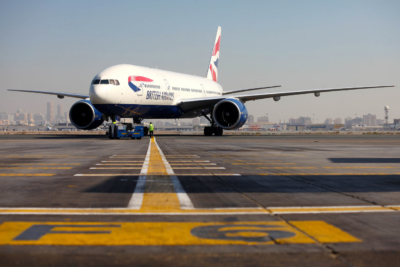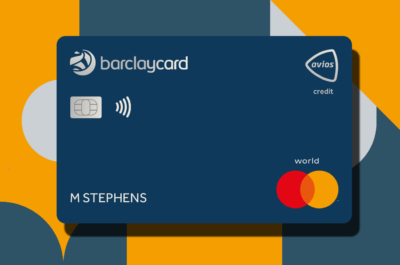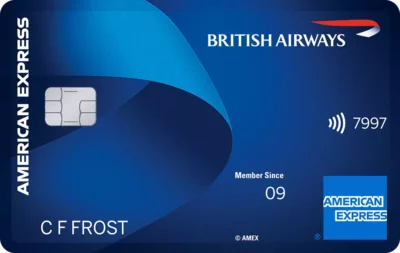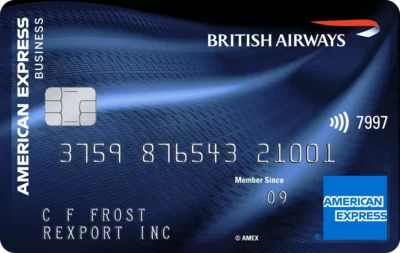Underwhelming British Airways sale now on
Links on Head for Points may support the site by paying a commission. See here for all partner links.
British Airways has launched its annual December sale – click here for details. Without a hint of irony, it is called ‘The Unforgettable Sale’. Once you’ve seen the pricing you may disagree.
I’m not sure what is going on here – I am guessing that there will be a separate premium sale later on. We know that business class loads are weak but there are no real deals here.
The headline deals being advertised are all in World Traveller:

- New York from £399 return
- New Orleans from £545 return
- Santiago from £679 return
- Los Angeles from £499 return
- San Diego from £577 return
- San Francisco from £499 return
- Dubai from £299 return
- Calgary from £549 return
- Buenos Aires from £699 return
- Tokyo from £677 return
- Fort Lauderdale £379 return
- Oakland £379 return
- Singapore £499 return
- Johannesburg from £570 return
A quick look at the British Airways Low Fare Finder site doesn’t show much of merit in Club World.
New York is no cheaper than £1800, for example. San Francisco is no cheaper than £2075. Buenos Aires is no cheaper than £2639 whilst Dubai bottoms out at a still pricey £1495 – and only if you travel during Ramadan.
The sale home page is here if you want to take a look. All deals must be booked by 31st January.
There are some slightly better deals over at BA Holidays, assuming you are happy to package in a hotel with your flight.

How to earn Avios from UK credit cards (April 2024)
As a reminder, there are various ways of earning Avios points from UK credit cards. Many cards also have generous sign-up bonuses!
In February 2022, Barclaycard launched two exciting new Barclaycard Avios Mastercard cards with a bonus of up to 25,000 Avios. You can apply here.
You qualify for the bonus on these cards even if you have a British Airways American Express card:

Barclaycard Avios Plus Mastercard
Get 25,000 Avios for signing up and an upgrade voucher at £10,000 Read our full review

Barclaycard Avios Mastercard
5,000 Avios for signing up and an upgrade voucher at £20,000 Read our full review
There are two official British Airways American Express cards with attractive sign-up bonuses:

British Airways American Express Premium Plus
25,000 Avios and the famous annual 2-4-1 voucher Read our full review

British Airways American Express
5,000 Avios for signing up and an Economy 2-4-1 voucher for spending £15,000 Read our full review
You can also get generous sign-up bonuses by applying for American Express cards which earn Membership Rewards points. These points convert at 1:1 into Avios.

American Express Preferred Rewards Gold
Your best beginner’s card – 20,000 points, FREE for a year & four airport lounge passes Read our full review

The Platinum Card from American Express
40,000 bonus points and a huge range of valuable benefits – for a fee Read our full review
Run your own business?
We recommend Capital on Tap for limited companies. You earn 1 Avios per £1 which is impressive for a Visa card, along with a sign-up bonus worth 10,500 Avios.
SPECIAL OFFER: Until 12th May 2024, the Capital on Tap Business Rewards Visa card is offering a bonus of 30,000 points, convertible into 30,000 Avios. You must have a Limited Company to apply. Click here to learn more and click here to apply.

Capital on Tap Business Rewards Visa
Huge 30,000 points bonus until 12th May 2024 Read our full review
You should also consider the British Airways Accelerating Business credit card. This is open to sole traders as well as limited companies and has a 30,000 Avios sign-up bonus.

British Airways Accelerating Business American Express
30,000 Avios sign-up bonus – plus annual bonuses of up to 30,000 Avios Read our full review
There are also generous bonuses on the two American Express Business cards, with the points converting at 1:1 into Avios. These cards are open to sole traders as well as limited companies.

American Express Business Platinum
40,000 points sign-up bonus and an annual £200 Amex Travel credit Read our full review

American Express Business Gold
20,000 points sign-up bonus and FREE for a year Read our full review
Click here to read our detailed summary of all UK credit cards which earn Avios. This includes both personal and small business cards.



 Rob
Rob 




Comments (82)